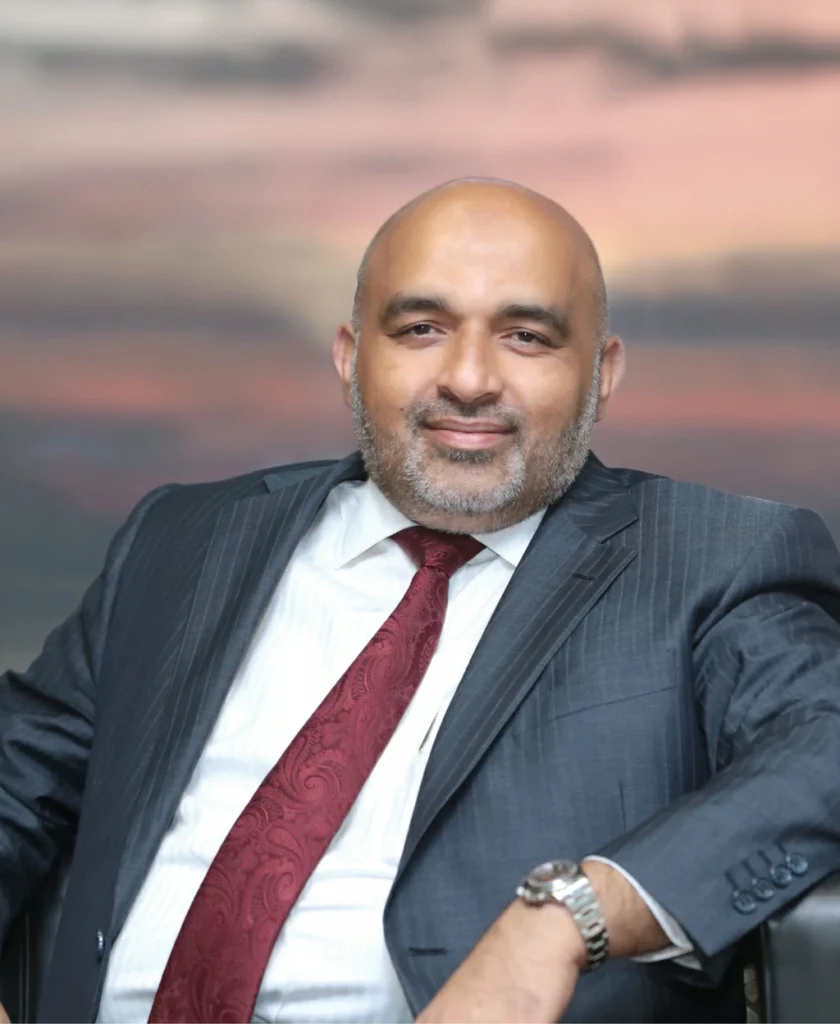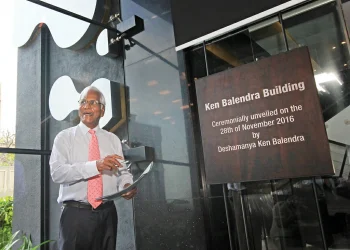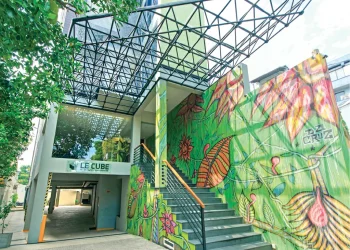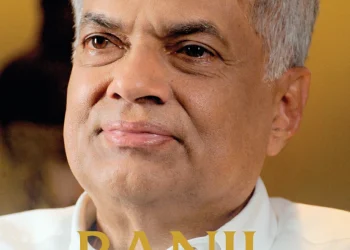
It was a journey that started at the bottom, a schoolboy’s dream where he was probably one of the youngest Sri Lankan entrepreneurs at that time. Passion and determination continue to drive him past obstacles and challenges. From humble beginnings, M Muslim Salahudeen, CEO/Founder, Mushan International has established an international brand for Sri Lankan sapphires.
By Keshini de Silva | Photography Mahesh Bandara and Menaka Aravinda
You were one of the youngest entrepreneurs in Sri Lanka. Could you tell us about your journey?
I am currently the CEO of Mushan International, the company I established while I was in school. Initially it was named Muslim Salahudeen under my name. After my marriage in 1988, it was registered as Mushan International. ‘Mushan’, is the name of my son and is a combination of my name and my wife’s name.
My family was involved in the textiles industry. There was an interesting series of events that guided me to Colombo. At that time my father, Dr Moulavi Salahudeen was a key representative of the Muslim community and was Director, Islamic Centre. Prime Minister J R Jayewardene, after he was elected in 1977, visited my father to obtain his blessings. It was then that the Minister of Transport M H Mohamed and Minister of Education Nissanka Wijeratne who were impressed by my passion suggested to my father to send me to D S Senanayake College in Colombo for my education. During my schooling in Colombo, I was boarded at the home of a renowned gem merchant. Here my passion for gems began.
By The Time I Was Sitting For My Ordinary Level Examination I Had Already Established An Office In Pettah. I Am Sure, At That Time, I Was One Of The Country’s Youngest Exporters And Tax Payers.
I first observed the process of cutting and polishing. After school lessons I would cut and polish the stones and sell them. I collected my pocket money, and purchased cinnamon stones from a mine that opened in Kataragama. I must have cut a large number of stones amounting to over several thousand carats, it was a learning process. On weekends I used to head to Beruwela, where the ‘Paththe Bazzar’, a village fair took place. Here I would engage in buying and selling. By the time I was sitting for my Ordinary Level Examination I had already established an office in Pettah. I am sure I was one of the country’s youngest tax payers and my first export story is interesting. This was during a time when the Japanese economy was doing well and I received the opportunity to export to a leading corporation in Japan. However, when I attempted to obtain membership with the Export Development Board, which is a must for all exporters in Sri Lanka, I was denied on the grounds of being underage as I was only 17 years. According to the law at that time, one had to be over the age of 18 to export. However, I met the then Minister of Finance, Ronnie de Mel, who issued a special notice for the removal of the age requirement for exports. It was the same with the tax file. I had to wait until I was 18 years old to start my tax file.
It was a tough journey with many challenges, especially managing both studies and a business; it is a difficult story to tell. I used to open my office in Pettah at six in the morning and close at late night, I was the first to open and the last to close, working up to 18 hours a day. In the early days, for my school vacation, when I go to Kandy, even during the fasting month of Ramadhan I worked all 30 days except the festival day. I would get on a CTB bus at dawn from Kandy and would get back home in the evening.
I created my own capital. The only thing I received and needed from my parents, were their blessings, especially my father’s. And by the grace of Almighty and my father’s blessing I have been able to achieve what I have today.
Could you tell us about your experiences in establishing Mushan International and the distinctiveness of the company?
I have been in the business of gems for over three and a half decades now. During the company’s early days Sri Lankan merchants did not travel and participate in overseas trade shows. However, I would. I used to travel to America, Japan, Hong Kong and Europe.I represented the country in business delegations as well. In the beginning, acquiring capital was tough, however I was able to build up the company, while overcoming many bottlenecks. Today we are world famous. Mushan Fine Sapphires is synonymous across the world for collectors’ and investment pieces. The yield of our investments are quite high too. If you take the last two decades, investment stones and the high yield return of precious stones have increased by up to eight to ten times. We are engaged in offshore mining through investments in mining companies. We have many buyers working for us in the mining markets in Sabaragamuwa, Ratnapura and even Africa.
Today We Are World Famous. Mushan Fine Sapphires Is Synonymous Across The World For Collectors’ And Investment Pieces.
Mushan International is a B2B (Business to Business) organisation. My vision is to create a brand in the wholesale colour stone industry. My long term ambition is for customers globally to go to a jewellers and say, ‘we want a Mushan Fine Sapphire’. I believe we have reached a level, as we currently lead in the wholesale gem industry of Sri Lanka.
Mushan International is also the number one exporter in the industry. Our recognition includes the Gem Corporation 40-year Excellence Award, Global Excellence Award from the Central Bank and the Best Fashion Stone Award from the Gemologists Association of Sri Lanka for many years. We also received the Presidential Export Award for the gem exports. Today, we deal with the the top brands in the world. We work with the European, American, Chinese and Middle Eastern markets. We have off shore dealers who are working with the top brands in the world.
Could you tell us your thoughts on Sri Lankan gems, and the demand for them?
Sri Lankan gems, especially the blue sapphires are world famous and unmatched. Although they say that Kashmir is valuable, in my view Sri Lankan sapphires are number one, both in terms of beauty and quality. Many Sri Lankans have gone to Madagascar as they have discovered new mines. Whenever there is a new discovery Sri Lankans are always there. As it is in the same geographical belt as Sri Lanka, certain characteristics might be similar. However, the Sri Lankan Sapphire is a unique product as such there is a market for it across the world. It is also easy to identify the position of the stone when you compare Sri Lankan rough stones with others. Identifying quality rough stones (unpolished) is a completely different process. Unlike with polished stones, you need to see beyond the stone you see. And for that you must have a good eye and knowledge.
The end markets for Sri Lankan gems are mainly USA, Europe, Russia, China and the Middle East. This year in particular has been tough for the industry due to the petroleum crisis that has affected the Middle East, the political situation that has had an impact on Russia and the crisis in Europe. Our industry is the first to get hit and the last to recover in any crisis. I believe the Government must also liberalise the inflow of rough gems to make Sri Lanka a hub for colour stones. The Government has a target to reach one billion dollars in gem exports. Just as Thailand is popular for commercial gem stones, Sri Lanka can be a hub for precious stones. Even China for example is quite far ahead. They have their own semi precious stones, yet they import precious stones from other countries and have developed the industry. On the other hand, authorities must restrict the outflow of rough stones. The industry must be motivated to add value and export. Then there will be more job opportunities. The Sri Lankan gem industry, from mining to the cut and polish process, employs more than one million people indirectly.
The promotion of the gem industry is important. The Government is implementing certain campaigns, but they must do more. We are fortunate that the Export Development Board has made the industry one of their priorities. An important facility the Sri Lankan industry requires is an international standard gem testing laboratory. The National Gem & Jewellery Authority does have a lab; however, it is not up to the international standard. Currently, we depend on overseas facilities such as Switzerland and Thailand for testing the gems and the issuance of certification. As these are luxury items, customers require a certificate of authenticity. The shipping of gems for testing overseas creates delays and incurs many additional costs; it is a stumbling block for exporters. Sri Lanka’s tourism industry too is growing. By linking the industries we must promote our gems to tourists and they must also have no restrictions in taking their purchases back home.
Your thoughts on the technological expertise in the gem industry in Sri Lanka?
The Sri Lankan gem industry has been in existence for many centuries. We have a good traditional system for gem mining, which in my view is better and should be protected. Industrialising it with new machinery, would result in an oversupply and environmental pollution. It would make it a challenge to maintain prices as well as to moderate demand and supply. Recently, I visited a Tajikistan business forum, where they were inviting Sri Lankan miners to share their expertise with them. Even countries such as Madagascar and Tanzania request our expertise.
Sri Lanka Is One Of The Safest Countries Globally And The Entire World Is Eyeing Us For Prospective Business Opportunities. Therefore, We Must Market The Country Much More.
In terms of cutting and polishing gems however we need to advance our systems. Sri Lankans are extremely skilled and probably the world’s best in cutting the stone while saving the quality. If you compare Sri Lankan cutting with the cutting process in Thailand, when our yield is 60 per cent, their yield will be between 30 to 40 per cent. While in other countries the cut might be more precise due to their technological advancements, we have the knowledge to save the maximum yield and quality.
You also hold a sizeable portfolio in real estate, could you explain your thoughts on the market and the opportunities you see?
My business teacher would always advise me against putting everything in one basket. He would constantly say that real estate is always a safe investment. Even within the last few decades real estate has continuously appreciated. It is also a safe investment that no one can take away from you. Thus, over the years I built a real estate portfolio. We have an established brand in gems. I now hope to create a brand in property development. That is my next dream and vision. I want to start with a one-of-a-kind apartment project.
As an entrepreneur yourself, what are your thoughts on the Sri Lankan business landscape?
There are tremendous opportunities in Sri Lanka. Sri Lankans living overseas are quite interested in investing in the country. Sri Lanka is one of the safest countries globally and the entire world is eyeing us for prospective business opportunities. We can market our weather patterns, since our climate conditions around the calendar feature a tropical weather pattern. Therefore, we must market the country much more.
In real estate especially there is room to grow. As Sri Lanka is a small country and city limits are low, the demand for property is high. Apart from foreign investors, even those in the suburbs and villages, if they have funds they want move to the cities, especially Colombo. So I’m of course very bullish.
What are your future plans?
I would like to concentrate on luxury housing and commercial development and also we would like to invest more in jewellers. There are many new jewellers who are extremely talented. Although we are a B2B, if the jewellers are successful then so are we. The Government too should support these new skilled entrants. In the past, Italy was renowned for fine jewellery, however today you see the emergence of competitors such as China, Thailand and Hong Kong. Skilled Sri Lankans are employed in overseas gem and jewellery markets. We must create opportunities for them in the country and make Sri Lanka a hub for precious stones.






